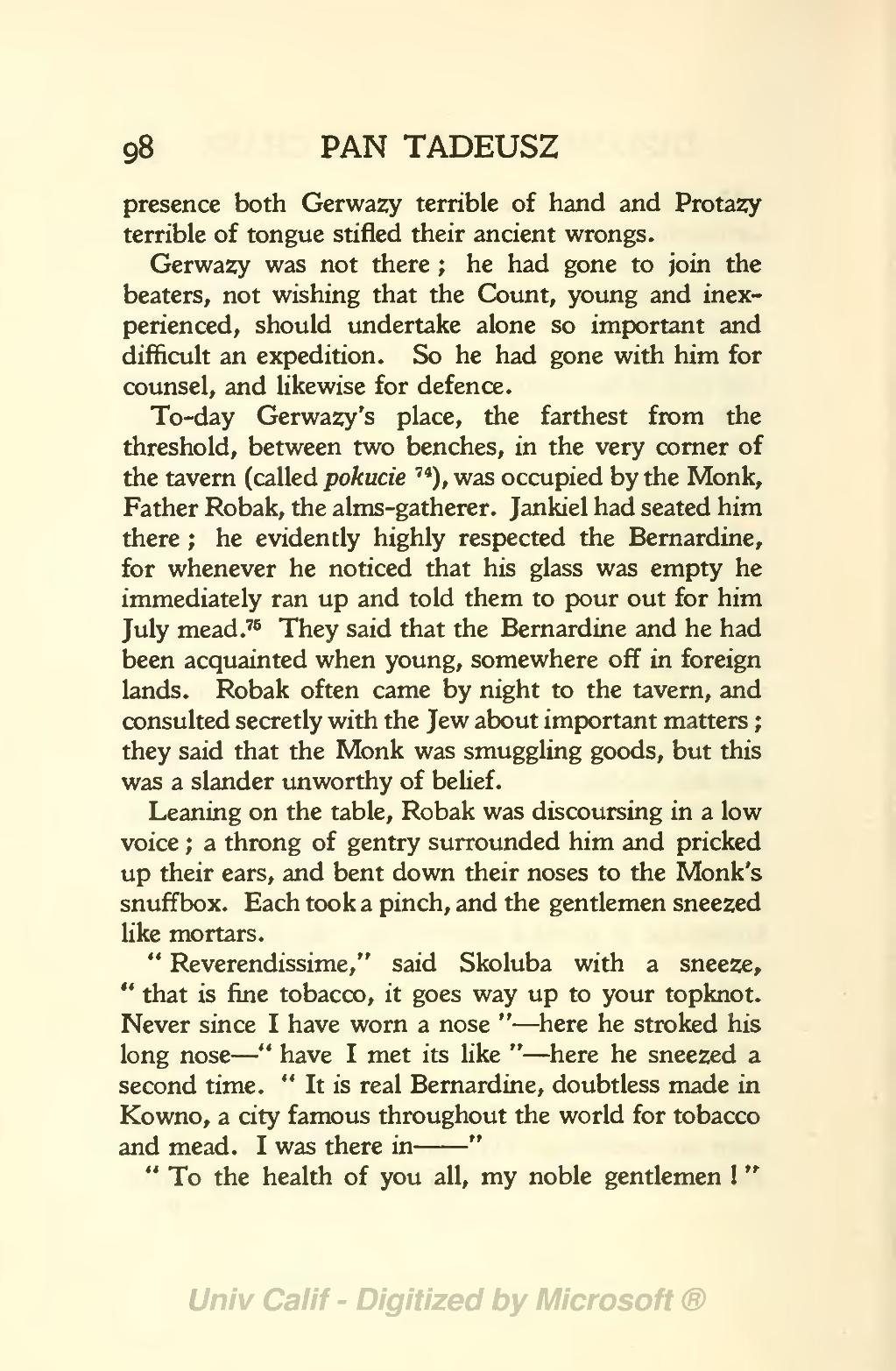presence both Gerwazy terrible of hand and Protazy terrible of tongue stifled their ancient wrongs.
Gerwazy was not there; he had gone to join the beaters, not wishing that the Count, young and inexperienced, should undertake alone so important and difficult an expedition. So he had gone with him for counsel, and likewise for defence.
To-day Gerwazy's place, the farthest from the threshold, between two benches, in the very corner of the tavern (called pokucie74), was occupied by the Monk, Father Robak, the alms-gatherer. Jankiel had seated him there; he evidently highly respected the Bernardine, for whenever he noticed that his glass was empty he immediately ran up and told them to pour out for him July mead.75 They said that the Bernardine and he had been acquainted when young, somewhere off in foreign lands. Robak often came by night to the tavern, and consulted secretly with the Jew about important matters; they said that the Monk was smuggling goods, but this was a slander unworthy of belief.
Leaning on the table, Robak was discoursing in a low voice; a throng of gentry surrounded him and pricked up their ears, and bent down their noses to the Monk's snuffbox. Each took a pinch, and the gentlemen sneezed like mortars.
"Reverendissime," said Skoluba with a sneeze, "that is fine tobacco, it goes way up to your topknot. Never since I have worn a nose"—here he stroked his long nose—"have I met its like"—here he sneezed a second time. "It is real Bernardine, doubtless made in Kowno, a city famous throughout the world for tobacco and mead. I was there in—"
"To the health of you all, my noble gentlemen!"
